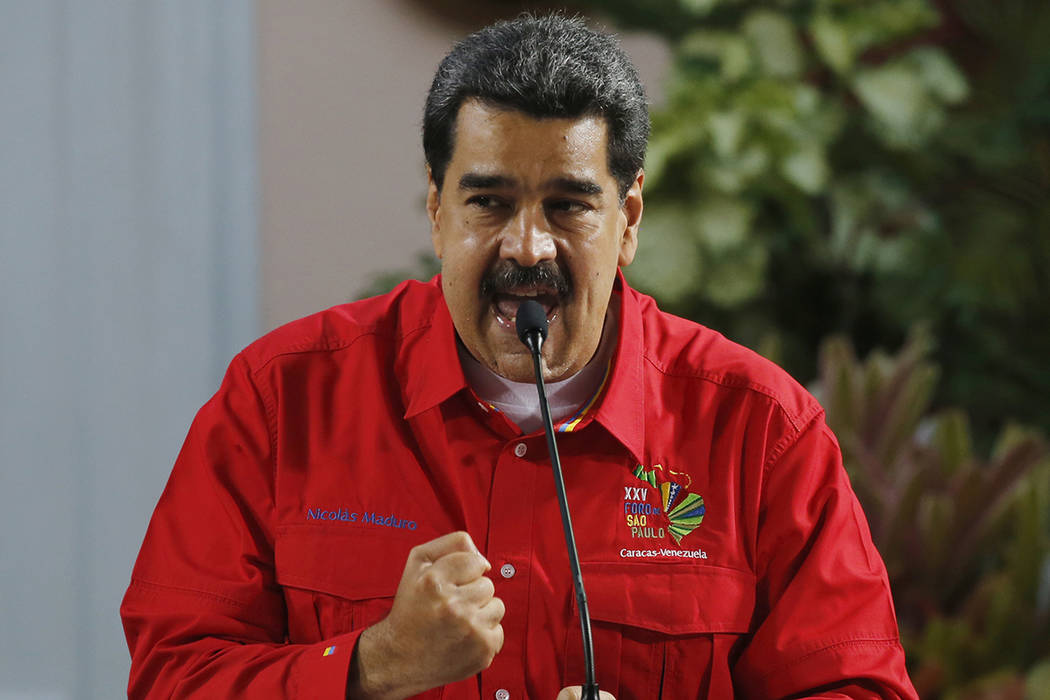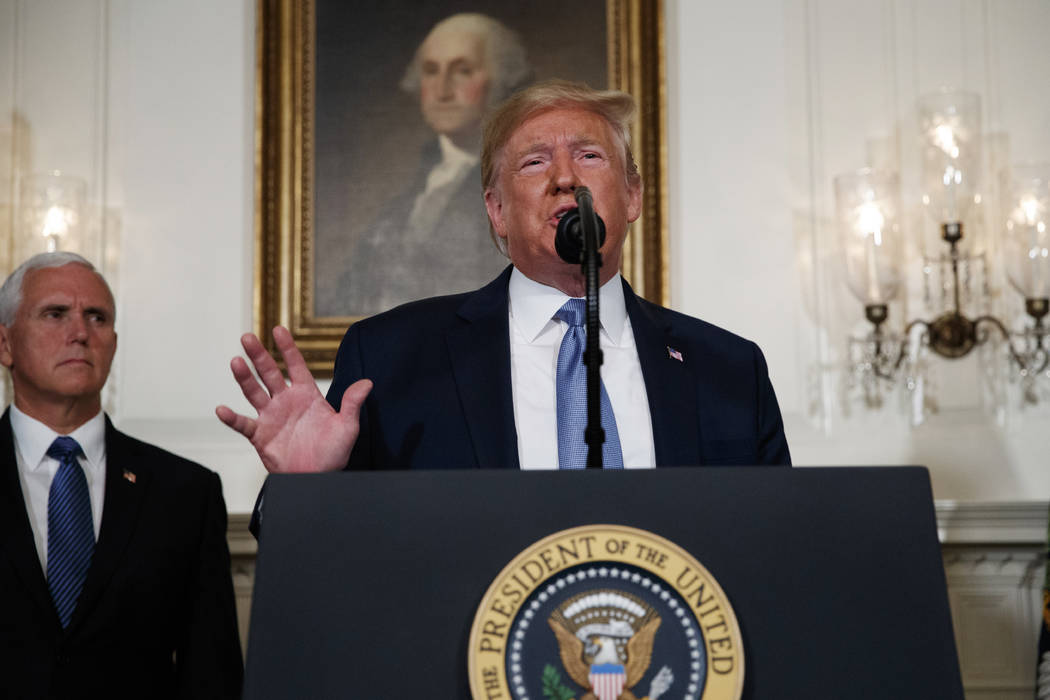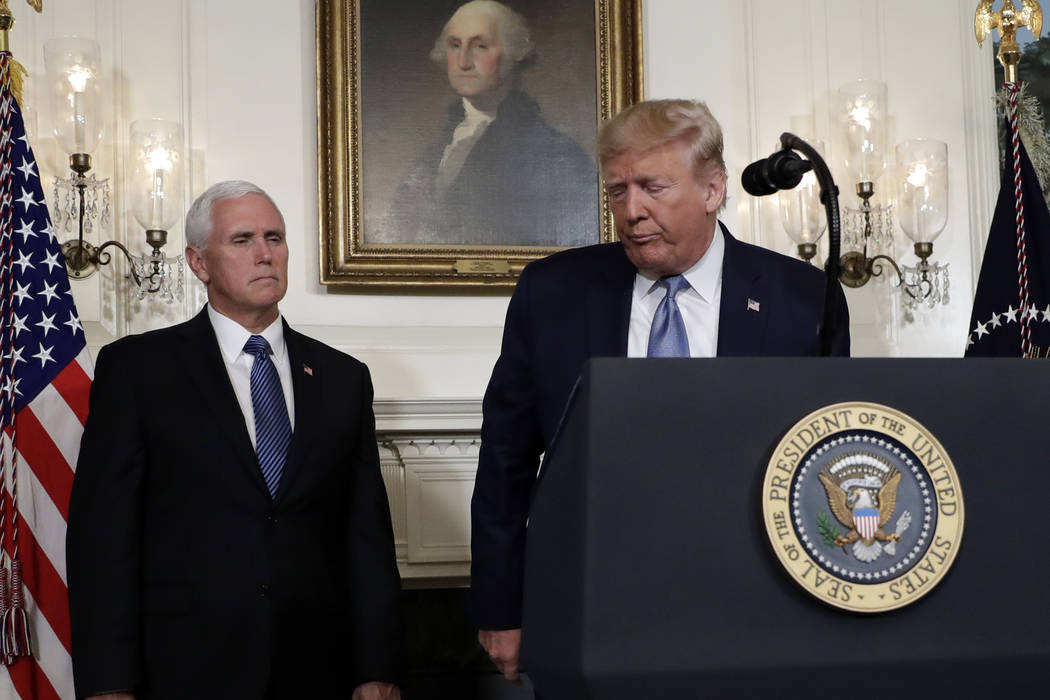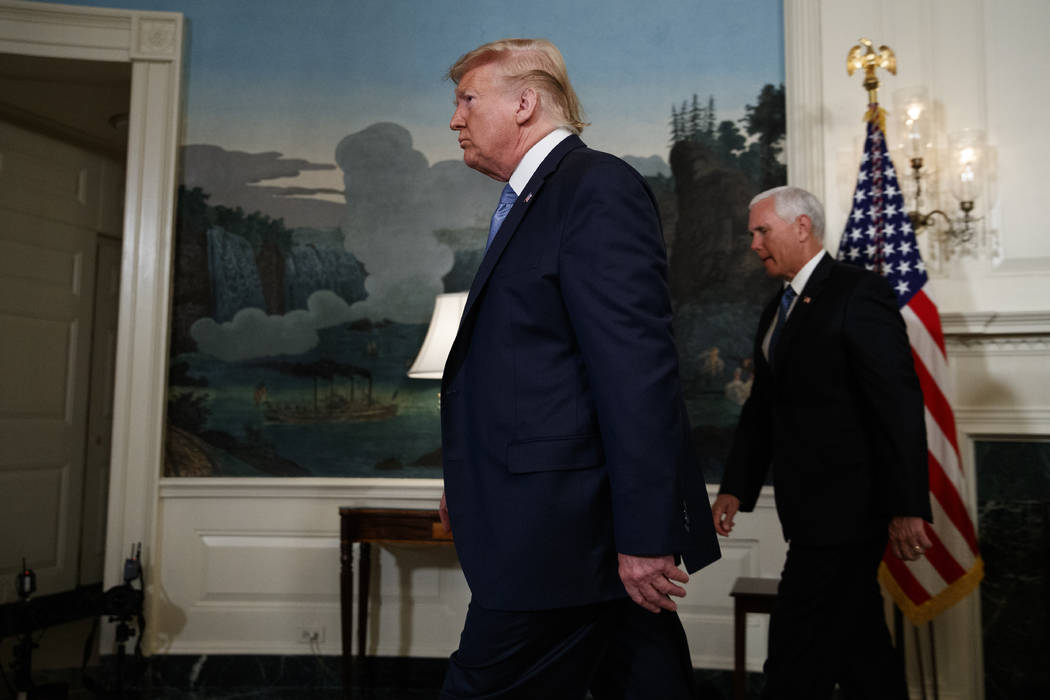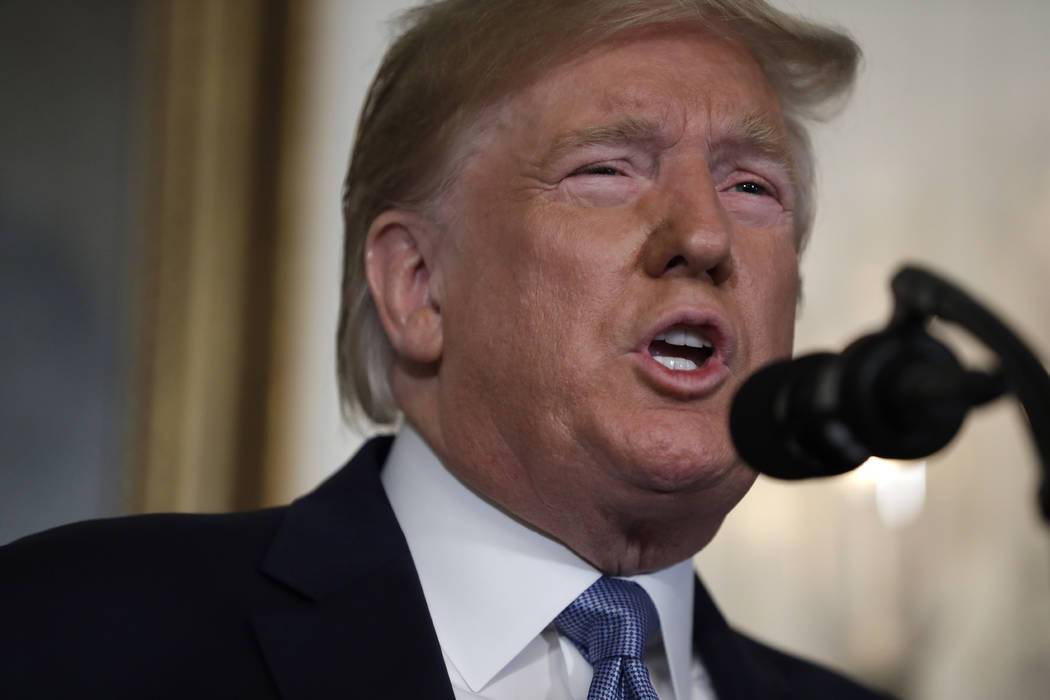Maduro regime makes Venezuela a rogue state, Bolton warns
WASHINGTON — U.S. National Security Adviser John Bolton pressed his case Tuesday for sweeping action against Venezuela’s President Nicolás Maduro, warning foreign governments and companies that they could face retaliation in the U.S. if they continue to do business with his socialist administration.
Bolton’s comments came after the White House on Monday night froze all Venezuelan government assets in the U.S., putting the country on a short list of U.S. adversaries, including Cuba, North Korea and Iran that have been targeted by such aggressive financial measures.
“The Maduro regime now joins that exclusive club of rogue states,” Bolton said at a one-day conference in Peru of more than 50 governments aligned against Maduro.
The broad ban blocking companies and individuals from doing business with Maduro’s government and its top supporters took effect immediately and is the first of its kind in the Western Hemisphere since an asset freeze against Gen. Manuel Noriega’s government in Panama and a trade embargo on the Sandinista leadership in Nicaragua in the 1980s.
“We are sending a signal to third parties that want to do business with the Maduro regime: Proceed with extreme caution,” Bolton said. “There is no need to risk your business interests with the United States for the purposes of profiting from a corrupt and dying regime.”
Short of trade embargo
While the order falls short of an outright trade embargo — notably, it spares Venezuela’s still sizable private sector — it represents the most sweeping U.S. action to remove Maduro since the Trump administration recognized opposition leader Juan Guaidó as Venezuela’s rightful leader in January.
Critically, it also exposes foreign entities doing business with the Maduro government to so-called secondary sanctions in the U.S. — a fact not lost on Maduro’s government as it tries to rally support at home and abroad.
“The U.S. has to understand once and for all that they aren’t the owners of the world,” Vice President Delcy Rodriguez said in a statement from Caracas. “Every country that has investments in the U.S. should be very worried because this sets a dangerous precedent against private property.”
Rodriguez, flanked by Defense Minister Vladimir Padrino, who the U.S. has tried to woo into betraying Maduro, said the sanctions would only bring more hardship upon the Venezuelan people without weakening the socialist revolution.
She also posited that Washington’s real aim is to sabotage ongoing negotiations in Barbados with the opposition aimed at resolving the country’s protracted political and economic crisis.
A senior Trump administration official said the timing of the sanctions reflects the U.S. assessment that those talks, which started in May and are being sponsored by Norway, are going nowhere and being used by the Maduro government to buy time. The official spoke on the condition of anonymity because he wasn’t authorized to comment on the talks.
The executive order signed by President Donald Trump justified the move by citing Maduro’s “continued usurpation of power” and human rights abuses by security forces loyal to him.
Maduro’s foreign supporters staunchly denounced the move.
Russia denounces US move
Konstantin Kosachev, the head of the Russian upper house’s international affairs committee, accused the U.S. of “international banditry” while Cuba’s Foreign Minister Bruno Rodriguez charged that the U.S. is trying to “damage and rob that nation” with its “blockade.”
But even some U.S. allies could be affected by the move, which Bolton acknowledged has been used only sparingly in the past half-century.
A number of European countries, from Spanish oil company Repsol to Air France, continue to operate in Venezuela and could see their U.S. assets seized unless they cut ties with the government. India and China are major buyers of crude from state-run oil giant PDVSA. All of the companies rely on the U.S. to process financial payments.
The European Union and Canada banded together in April to sharply criticize a U.S. decision to lift a two-decade ban on lawsuits against foreign firms operating on properties Cuba seized from Americans following Fidel Castro’s 1959 revolution.
Sanctions impact yet to be seen
The real life impact of the new sanctions on regular Venezuelans remains to be seen. The moribund economy has been suffering for years from six-digit hyperinflation, widespread shortages and a deep contraction that surpasses that of the Great Depression in the U.S.
Previous sanctions targeting the South American nation’s oil industry, the source of almost all of its export earnings, have already accelerated a crash in oil production that started with Maduro’s election in 2013 following the death of his mentor Hugo Chavez.
More than 100 officials and government insiders also have had their U.S. assets frozen and blocked from doing business with Americans. As part of the executive order, Americans or U.S. companies that do business with such individuals face penalties. The same Maduro supporters will also be banned from entering the U.S.
Exceptions will be allowed for the delivery of food, medicine and clothing. Transactions with Venezuela’s still sizable private sector are also spared, although it’s possible even legitimate transactions will be affected as U.S. and foreign companies and banks exhibit an excess of caution.
“The truth is that no financial institution wants to run afoul of the Treasury Department,” said Geoff Ramsey, a researcher at the Washington Office on Latin America.
It is unclear how the actions will affect American oil giant Chevron, which last month received a three-month exemption from the U.S. Treasury to allow it to continue drilling for oil with Venezuela’s state-run oil monopoly PDVSA.
Guaidó celebrated the U.S. action, saying it would protect Houston-based oil company CITGO, Venezuela’s most valuable overseas asset, from attempts by Maduro to mortgage its assets.
“Any individual, company, institution or nation that tries to do business with the regime will be seen by the international justice system as collaborating with and sustaining a dictatorship,” Guaidó said in a series of late-night Tweets. “They will be subject to sanctions and considered an accomplice to crimes.”



